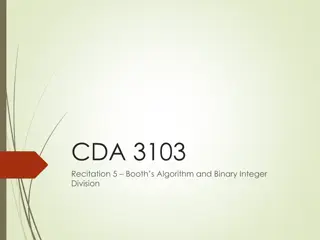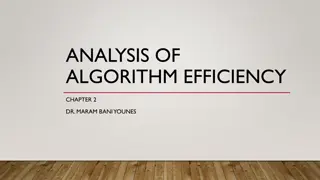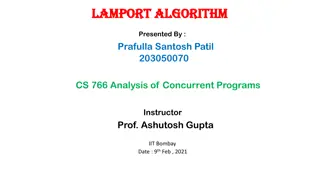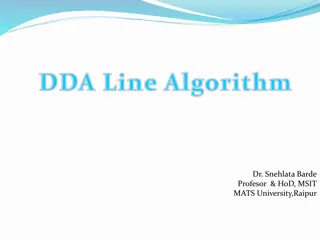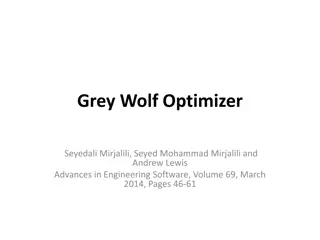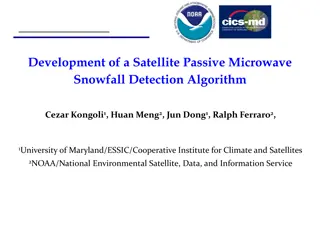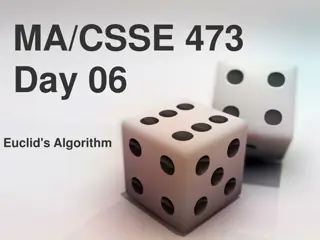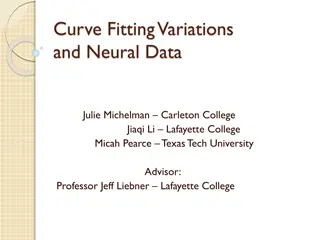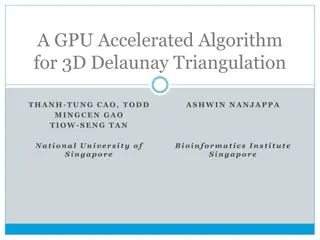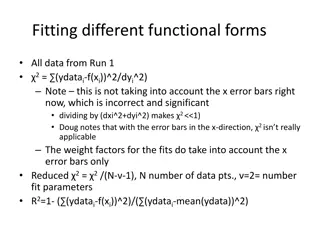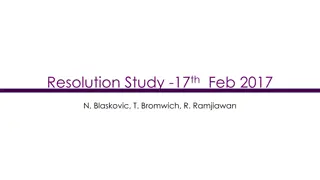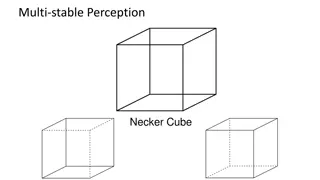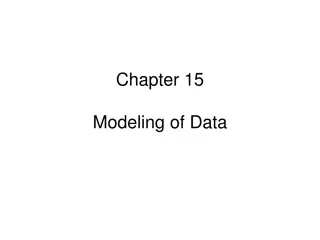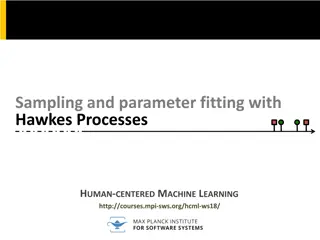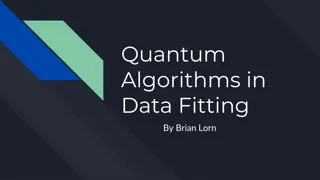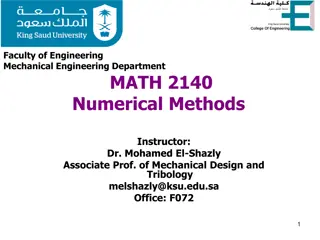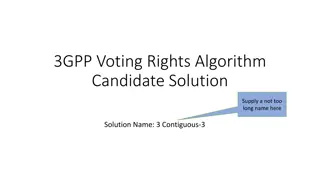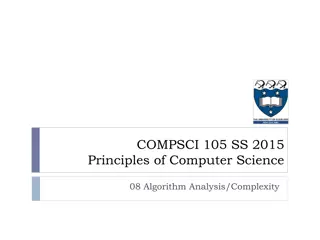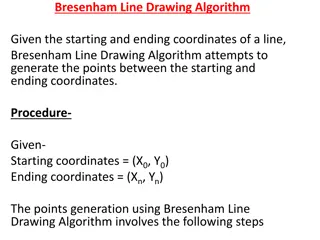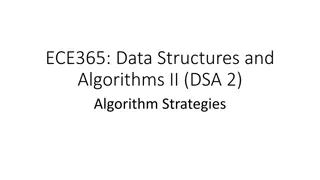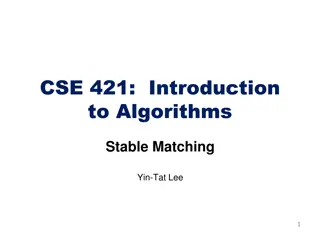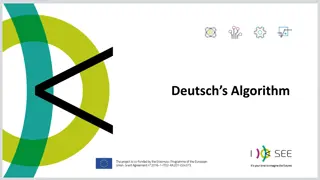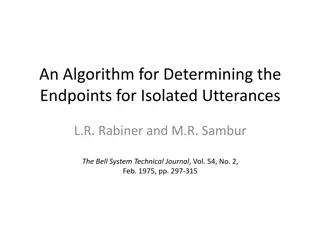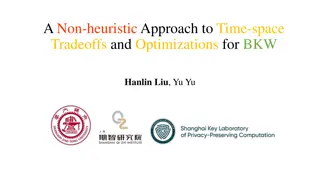Algorithm Analysis
Algorithm analysis involves evaluating the efficiency of algorithms through measures such as time and memory complexity. This analysis helps in comparing different algorithms, understanding how time scales with input size, and predicting performance as input size approaches infinity. Scaling analysi
1 views • 30 slides
Booth's Algorithm for Binary Integer Division
Learn about Booth's Algorithm and how it facilitates binary integer division. Discover key points to remember when using the algorithm, steps to initiate the process, and a detailed example to illustrate the multiplication of two operands using Booth's Algorithm.
2 views • 42 slides
Best service for Emergency Tyres in Wood Green
Rickys Tyres Ltd 24HR Mobile Tyre Fitting provides the Best service for Emergency Tyres in Wood Green. Their mission is simple: to deliver professional and efficient tyre solutions, right to your doorstep. They feel pride in being the foremost mobile tyre fitting company in London, dedicated to prov
1 views • 6 slides
Stable Matchings and the Gale-Shapley Algorithm
The concept of stable matchings is explored, along with the Gale-Shapley algorithm for finding them efficiently. Key ideas and steps of the algorithm are explained, supported by visuals. The process, examples, and observations related to the algorithm's effectiveness are discussed, highlighting the
3 views • 29 slides
Ricart and Agrawala's Algorithm for Mutual Exclusion
The Ricart-Agrawala Algorithm is a distributed system algorithm for achieving mutual exclusion without the need for release messages, developed by Glenn Ricart and Ashok Agrawala. The algorithm involves processes sending timestamped requests to enter a critical section, with careful handling of repl
2 views • 16 slides
Algorithm Efficiency Analysis
In this chapter, Dr. Maram Bani Younes delves into the analysis of algorithm efficiency, focusing on aspects such as order of growth, best case scenarios, and empirical analysis of time efficiency. The dimensions of generality, simplicity, time efficiency, and space efficiency are explored, with a d
2 views • 28 slides
Lamport Algorithm for Mutual Exclusion
Lamport Algorithm, presented by Prafulla Santosh Patil, is a permission-based algorithm utilizing timestamps to order critical section requests and resolve conflicts. It employs three types of messages: REQUEST, REPLY, and RELEASE, where each site manages a queue to store requests. By ensuring commu
1 views • 15 slides
Curve Fitting Techniques
Curve fitting involves approximating function values using regression and interpolation. Regression aims to find a curve that closely matches target function values, while interpolation approximates points on a function using nearby data. This chapter covers least squares regression for fitting a st
0 views • 48 slides
Digital Differential Analyzer (DDA) Algorithm in Computer Graphics
In computer graphics, the Digital Differential Analyzer (DDA) Algorithm is utilized as the basic line drawing algorithm. This method involves interpolation of variables between two endpoints to rasterize lines, triangles, and polygons efficiently. The algorithm requires inputting coordinates of two
1 views • 9 slides
Best Gas Fitting Services in Lawnton
If you want the Best Gas Fitting Services in Lawnton, visit DJF Plumbing & Gasfitting. They specialize in tap repairs, gas fitting, and servicing, blocked drains, and hot water systems. Their work is guaranteed to be professional and affordable, usin
1 views • 6 slides
Grey Wolf Optimizer: A Nature-Inspired Optimization Algorithm
The Grey Wolf Optimizer algorithm is based on the social hierarchy of grey wolves in the wild. Inspired by the pack behavior of grey wolves, this algorithm utilizes alpha, beta, and delta solutions to guide the optimization process. The hunting phases of tracking, pursuing, and attacking prey mimic
4 views • 16 slides
Emergency Paediatric Tracheostomy Management Algorithm
Emergency Paediatric Tracheostomy Management Algorithm provides a structured approach for managing pediatric patients requiring tracheostomy in emergency situations. The algorithm outlines steps for assessing airway patency, performing suction, and changing the tracheostomy tube if necessary. It emp
1 views • 4 slides
Development of Satellite Passive Microwave Snowfall Detection Algorithm
This study focuses on the development of a satellite passive microwave snowfall detection algorithm, highlighting the challenges in accurately determining snowfall using satellite instruments. The algorithm uses data from AMSU/MHS, ATMS, and SSMIS sensors to generate snowfall rate estimates, overcom
0 views • 20 slides
Euclid's Algorithm: An Ancient Approach to Finding Greatest Common Divisors
Euclid's Algorithm, dating back 2500 years, offers a simpler method to find the greatest common divisor (gcd) of two non-negative integers compared to traditional factorization. By iteratively applying a rule based on the gcd of remainders, it efficiently computes gcd values. The basis of the algori
0 views • 15 slides
Curve Fitting and Regression Techniques in Neural Data Analysis
Delve into the world of curve fitting and regression analyses applied to neural data, including topics such as simple linear regression, polynomial regression, spline methods, and strategies for balancing fit and smoothness. Learn about variations in fitting models and the challenges of underfitting
0 views • 33 slides
GPU Accelerated Algorithm for 3D Delaunay Triangulation
Thanh-Tung Cao, Todd Mingcen Gao, Tiow-Seng Tan, and Ashwin Nanjappa from the National University of Singapore's Bioinformatics Institute present a GPU-accelerated algorithm for 3D Delaunay triangulation. Their work explores the background, related works, algorithm implementation, and results of thi
0 views • 24 slides
Functional Form Fitting in Data Analysis
Explore the intricacies of fitting different functional forms to data sets, considering error bars and weight factors. The analysis covers fitting to various models such as A=a+bT, A=a/(1+bT), 1/A=a+bT, 1/A=a+BT, fitting ln(A)=1+bT, and flipping axes to handle thickness errors more effectively. Key
0 views • 14 slides
Analysis of Resolution Study and Charge Scans on 17th Feb 2017
Detailed analysis conducted on 17th Feb 2017 includes resolution calculations, charge scans, attenuation comparisons, and improvements in data fitting. The study compares measured resolutions with predicted scaling, examines the impact of additional information on fitting, and explores peak shifts i
0 views • 30 slides
Unified Pan-Spectrum Fitting Formula for Suprathermal Particles
Unifying spectrum formulas for suprathermal particles, the proposed pan-spectrum formula provides a versatile fitting method encompassing classic double-power-law, band function, and kappa distribution. Motivated by the need for more accurate spectrum information, the formula introduces five paramet
0 views • 14 slides
Bathymetry Trackline Fitting Techniques at ACM SIGSPATIAL GIS 2009
Tsz-Yam Lau, You Li, Zhongyi Xie, and W. Randolph Franklin presented various ship trackline fitting techniques at the ACM SIGSPATIAL GIS 2009 conference in Seattle. The study explored methods such as Inverse Distance Weighting, Kriging, Voronoi, Linear Spline, Quadratic Spline, and more for bathymet
0 views • 12 slides
Multi-Stable Perception and Fitting in Computer Vision
Explore the intriguing concepts of multi-stable perception through visual illusions like the Necker Cube and the Spinning Dancer. Delve into the essentials of feature matching, robust fitting, and alignment in computer vision, including methods for refinement and design challenges. Learn about globa
0 views • 43 slides
QENS Fitting Workshop: Advancing Tools and Strategies
Explore the current limits of QENS fitting tools in Mantid, discuss strategies to surpass these limits, and consider creating an independent library of models. Agenda includes sessions on defining QENS fitting goals, desired functionalities, and experiences as a QENS user or developer. Engage in ses
0 views • 6 slides
Statistical Modeling and Analysis
Exploring statistical concepts such as mean, variance, skewness, kurtosis, Gaussian distribution, least squares fitting, chi-square fitting, and goodness-of-fit in data analysis. Learn about fitting parameters, probability computation, and interpretation of model goodness.
0 views • 24 slides
Duct Casings for Particulate Filters DCA: Installation and Filter Element Fitting
Explore the features and installation process of Duct Casings for Particulate Filters DCA, with a focus on easy filter changes, Mini Pleat filter fitting, clamping mechanisms for secure sealing, and support brackets for filter elements. Ensure proper airflow, sealing, and airtight fitting for optima
2 views • 4 slides
Sampling and Parameter Fitting with Hawkes Processes
Learn about sampling and parameter fitting with Hawkes processes in the context of human-centered machine learning. Understand the importance of fitting parameters and sampling raw data event times. Explore the characteristics and fitting methods of Hawkes processes, along with coding assignments an
0 views • 20 slides
Quantum Algorithms in Data Fitting by Brian Lorn
Data fitting involves establishing relationships between data points, commonly through interpolation, extrapolation, and smoothing methods. Various types and methods of data fitting, such as linear models and statistical tests, contribute to accurate estimations and predictions in different discipli
0 views • 14 slides
Nonlinear Curve Fitting Techniques in Engineering
Utilizing nonlinear curve fitting techniques is crucial in engineering to analyze data relationships that are not linear. This involves transforming nonlinear equations into linear form for regression analysis, as demonstrated in examples and methods such as polynomial interpolation and exponential
0 views • 18 slides
Analysis of Mosquito Collection Data: Net Weight, Water Coating, and Model Fitting
This analysis includes tables detailing the weight of batch 13 nets, mean water and insecticide for coating the net, model fitting of Poisson models for mosquito count dataset, and modeling fitting of ZIP and ZINB models for trap collection data. The tables provide valuable insights into net propert
0 views • 5 slides
Cuckoo Search: A Nature-Inspired Optimization Algorithm
Cuckoo Search (CS) algorithm, developed in 2009, mimics the brood parasitism of cuckoo species and utilizes Lévy flights for efficient optimization. This algorithm has shown promise in outperforming other traditional methods like PSO and genetic algorithms. The behavior of cuckoos in laying eggs an
0 views • 25 slides
Ford-Fulkerson Algorithm for Maximum Flow in Networks
The Ford-Fulkerson algorithm is used to find the maximum flow in a network by iteratively pushing flow along paths and updating residual capacities until no more augmenting paths are found. This algorithm is crucial for solving flow network problems, such as finding min-cuts and max-flow. By modelin
1 views • 26 slides
3GPP Voting Rights Algorithm: Contiguous-3 Solution Evaluation
This evaluation delves into the advantages and disadvantages of the 3 Contiguous-3 solution within the 3GPP voting rights algorithm. It explores scenarios to test the algorithm's effectiveness in granting and revoking voting rights based on meeting attendance types. The evaluation includes diverse h
0 views • 10 slides
Introduction to Algorithm Analysis and Complexity in Computer Science
Algorithm analysis is crucial in determining the efficiency of programs by analyzing resource usage such as time and space. This involves comparing programs, understanding data structures, and evaluating algorithm performance. Efficiency is key as program execution time depends on various factors be
0 views • 66 slides
Bresenham Line Drawing Algorithm Explained with Examples
Bresenham Line Drawing Algorithm is a method used to generate points between starting and ending coordinates to draw lines efficiently. This algorithm involves calculating parameters, decision parameters, and iteratively finding points along the line. Two example problems are provided with step-by-s
0 views • 8 slides
Algorithm Strategies: Greedy Algorithms and the Coin-changing Problem
This topic delves into general algorithm strategies, focusing on the concept of greedy algorithms where locally optimal choices are made with the hope of finding a globally optimal solution. The discussion includes the nature of greedy algorithms, examples such as Dijkstra's algorithm and Prim's alg
0 views • 91 slides
Stable Matching Problem and Gale-Shapley Algorithm Overview
The content provides information on the stable matching problem and the Gale-Shapley algorithm. It covers the definition of stable matching, the workings of the Gale-Shapley algorithm, tips for algorithm implementation, and common questions related to the topic. The content also includes a summary o
0 views • 16 slides
Advanced Emission Line Pipeline for Stellar Kinematics Analysis
This comprehensive pipeline includes processes for stellar kinematics, continuum fitting, Gaussian line fitting, and analysis of SAMI-like cubes. It also covers Gaussian fitting techniques, parameter mapping, and potential issues. The pipeline features detailed steps and strategies for accurate anal
0 views • 10 slides
Deutsch's Algorithm in Quantum Computing
Deutsch's Algorithm is a fundamental quantum algorithm designed to solve the problem of determining if a given function is constant or balanced. This algorithm leverages quantum principles such as superposition and entanglement to provide a more efficient solution compared to classical methods. By e
0 views • 17 slides
Algorithm for Determining Endpoints in Speech Recognition
This article discusses an algorithm proposed by L.R. Rabiner and M.R. Sambur in 1975 for determining endpoints in isolated utterances. The algorithm focuses on detecting word boundaries in speech through the recognition of silence, which can lead to reduced processing load and increased convenience,
0 views • 22 slides
Time-space Tradeoffs and Optimizations in BKW Algorithm
Time-space tradeoffs and optimizations play a crucial role in the BKW algorithm, particularly in scenarios like learning parity with noise (LPN) and BKW algorithm iterations. The non-heuristic approach in addressing these tradeoffs is discussed in relation to the hardness of the LPN problem and the
0 views • 14 slides
If you are searching for Gas fitting in North Harbour
If you are searching for Gas fitting in North Harbour, Prentice Solutions Limited is an Auckland-based company that specialises in plumbing, gas fitting, drainage, and roofing. If you are need a plumber or gasfitter who can listen, see your vision, a
0 views • 6 slides

